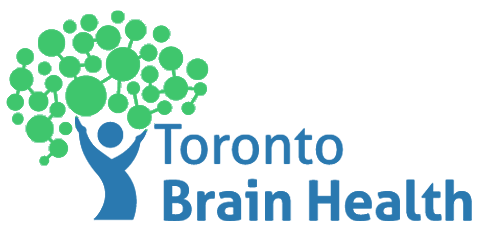Full Service List
We provide assessment and therapy services to adults (18 – 90+ years). Our services are available in-person at our clinic in Toronto or by virtual appointment throughout Ontario, Quebec, New Brunswick and Nova Scotia.
Assessments
- Initial psychological and neuropsychological consultation
- Psychological assessment
- Neuropsychological assessment (includes psychological evaluation)
- Adult ADHD diagnostic assessment
- Medicolegal evaluation – plaintiff and defendant
- Independent medical examination (STD and LTD insurer, employer, professional organizations)
- Baseline neuropsychological assessment in sport
- Post-injury neuropsychological assessment to inform return to play
- Neuropsychological assessment and/ or consultation to retired professional athletes who experience ongoing or newly emerging psychological and/or cognitive symptoms, including after 65+ years of age.
Treatment
Sport Concussion Management and Treatment:
- Consultation/ education on concussion diagnosis, prognosis, and maintaining factors of persistent symptoms for athletes.
- Consultation / education about common concerns in high performance and professional athletes, including repeat concussions or subconcussive hits, Chronic Traumatic Encephalopathy (CTE) and dementia risk.
- Identification and treatment of barriers to recovery to expedite return to play / learning.
- Treatment may include behavioural, emotional and/or cognitive rehabilitation, tailored to an athlete’s specific needs and clinical profile to address:
- Persistent symptoms such as light, screen or sound sensitivities;
- Post-concussive headaches or migraines (where cervical injury does not or only in part accounts for persistent / triggered headaches);
- Low stress or cognitive exertion tolerances after injury;
- Low physical exertion tolerances in conjunction with physical therapies;
- Cognitive difficulties (memory, attention, fogginess, slowed processing);
- Sleep problems, insomnia;
- Irritability, anger;
- Low mood, lack of motivation;
- Anxiety, nervousness, panic attacks;
- Resurgence of or development of psychological trauma response;
- Resurgence or worsening of OCD;
- Fatigue; and /or
- Dizziness, if maintained by behavioural and/or psychological factors in conjunction with vestibular therapy.
- Collaboration with the existing clinical team and/or referral to our multidisciplinary network, as needed, who have specialized knowledge and skills in concussion and/ or cervical management.
- Treatment, including targeted therapy, cognitive rehabilitation, future or transition planning, for retired professional athletes with ongoing or newly emerging psychological and/or cognitive symptoms.
- Sport career and/ or life transition support to retiring professional athletes or high-performance athletes transitioning out of sport, or facing sudden retirement from sport-related injury.
Cognitive rehabilitation or remediation interventions:
- Dealing with distractions
- Initiation and motivation
- Goal management
- Learning and study strategies
- Planning and organization
- Prioritization and productivity
- Problem management and decision making
- Procrastination
- Mobile technologies and apps to enhance memory functioning and learning
- Return to school strategies and accommodations (for adults aged 18+)
- Return to work strategies and accommodations
- Training in smartphone use/apps for moderate to severe memory impairment
- Wayfinding
Psychological treatment approaches
- Acceptance and Commitment Therapy (ACT)
- Client-Centered Therapy
- Cognitive Behaviour Therapy (CBT)
- Cognitive Processing Therapy (CPT)
- Emotion Focused Therapy
- Humanistic Therapy
- Mindfulness-Based Stress Reduction (MBSR)
- Strategic Solution Focused Therapy
- Pain Reprocessing Therapy (PRT)
- Integrated evidence-based approaches for chronic pain, somatoform disorders and medically unexplained symptoms
Neurological / Neurodivergent Conditions
(not an exhaustive list)
- Attention deficit hyperactivity disorder (ADHD)
- Alzheimer’s disease
- Aneurysm rupture
- Anoxic or hypoxic brain injury (oxygen deprivation due to cardiac arrest, drowning, suicide attempt, obstructive sleep apnea, chronic obstructive pulmonary disease)
- Arterial venous malformation (AVM)
- Brain tumor
- Cerebral infection/abscess
- Cerebrovascular disease
- Chemo fog/brain
- Concussion
- Frontotemporal dementia
- Healthy aging cognitive complaints
- Herpes encephalitis
- HIV encephalopathy
- Learning disabilities
- Long COVID
- Lupus
- Mild Cognitive Impairment
- Multiple sclerosis
- Parkinson’s Disease
- Post-concussion syndrome or concussion with persistent symptoms
- Primary Progressive Aphasia
- Seizure disorder
- Stroke
- Traumatic brain injury – mild, moderate, severe
- Vascular Cognitive Impairment
- Viral Encephalitis
- Wernicke-Korsakoff Syndrome
Common neuroplastic pain and psychophysiological conditions
(not an exhaustive list)
- Tension and migraine headaches
- Persistent Postural-Perceptual Dizziness (PPPD)
- Irritable Bowel Syndrome (IBS)
- Chronic abdominal, pelvic, or vomiting syndromes
- Chronic Fatigue Syndrome / Myalgic
- Encephalomyelitis (CFS/ME)
- Fibromyalgia
- Numbness, tingling, or burning sensations (paresthesias)
- Post-concussion syndrome or concussion with persistent symptoms
- Post-viral or post-concussive light, screen and sound sensitivities
- Tinnitus
- Myofascial pain syndrome
- Long COVID (when structural causes have been ruled out)
- Post-viral syndromes
- Back pain, neck pain, or foot pain with no identifiable injury or persistent pain beyond the expected healing period
- Somatic Symptom Disorder (SSD)
- Functional Neurological Disorder (FND)
- Other functional or unexplained medical symptoms
Psychological conditions / personal development
(not an exhaustive list)
- Adjustment to and coping with life/health changes
- Assertiveness
- Anxiety
- Panic disorder
- Agoraphobia
- Social Anxiety
- Social anxiety secondary to medical condition
- Generalized anxiety disorder
- Health anxiety
- Specific phobias
- Boundaries / personal development
- Care partner stress / caregiver burden
- Conversion disorder / Functional neurological disorder
- Depression
- Insomnia / sleep difficulties
- Mind-body syndrome / psychophysiological disorder / medically unexplained symptoms
- Obsessive compulsive disorders
- Perfectionism
- Post-concussive syndrome or concussion with persistent symptoms
- Post-traumatic stress disorder / trauma
- Somatic symptom disorder
- Stress and burnout
